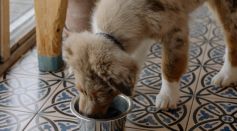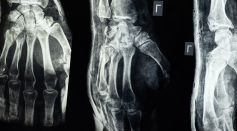MEDICINE & HEALTH

Chemical Messenger Dopamine Moves Mice Into 'Dreamy Stage' of Sleep, What Does It Mean for Human's Behavior?

How Many Daily Steps Does It Take to Live a Long Life? Nope, It Is Not 10,000

Some Pet Foods, Cosmetics May Contain Endangered Shark Meat As Shown in DNA Barcoding

Africa Once Again Battles Polio Outbreaks After Two Years of Declaring Free From Any of Its Types

New AI Model Can Tell Your Mental State Through Your Shared Post on Reddit, Social Media

Ukraine Reports No Radiation Level Changes at Zaporizhzhia Nuclear Power Plant After Russia Seizes Facility

Arthritis Drug Baricitinib Decreases Risk of COVID-Related Death [Trials]

Long, Irregular Menstrual Cycles in Women Make Them More At Risk for Fatty Liver Disease

Fecal Transplant Pills a Potential Food Allergy Treatment for People Allergic to Peanuts Based on Clinical Trial Results

Pennsylvania Cat Catches COVID-19 Delta Variant But It May Not Mutate Much in Other Felines

Women Vaccinated Against HPV Find Hope in New Cervical Cancer Test That Can Only Be Done Once in Their Lifetime

Why Are Women More Likely to Develop Alzheimer’s Disease? Here’s What a New Study of Female Mice Reveals

Long COVID Unlikely to Cause Fatigue, Headache in Children; Survey of Over 3,000 Student Shows Symptoms Are Common

Boy Diagnosed with Uncombable Hair Syndrome Still Looking for Cure; Will Biotin Supplements Get Him Treated?
Most Popular

Dream Science Meets Neuroscience: HowDream Engineering and Targeted Sleep Stimuli Unlock Creative Cognition

Why the Human Brain Fears the Unknown: Science Behind Anxiety and Uncertainty

The Gut Microbiome's Hidden Allies: New Bacteria Linked to Better Health and Well-Being

Coral Bleaching Crisis: Ocean Heatwaves Devastate Reefs and Marine Biodiversity





